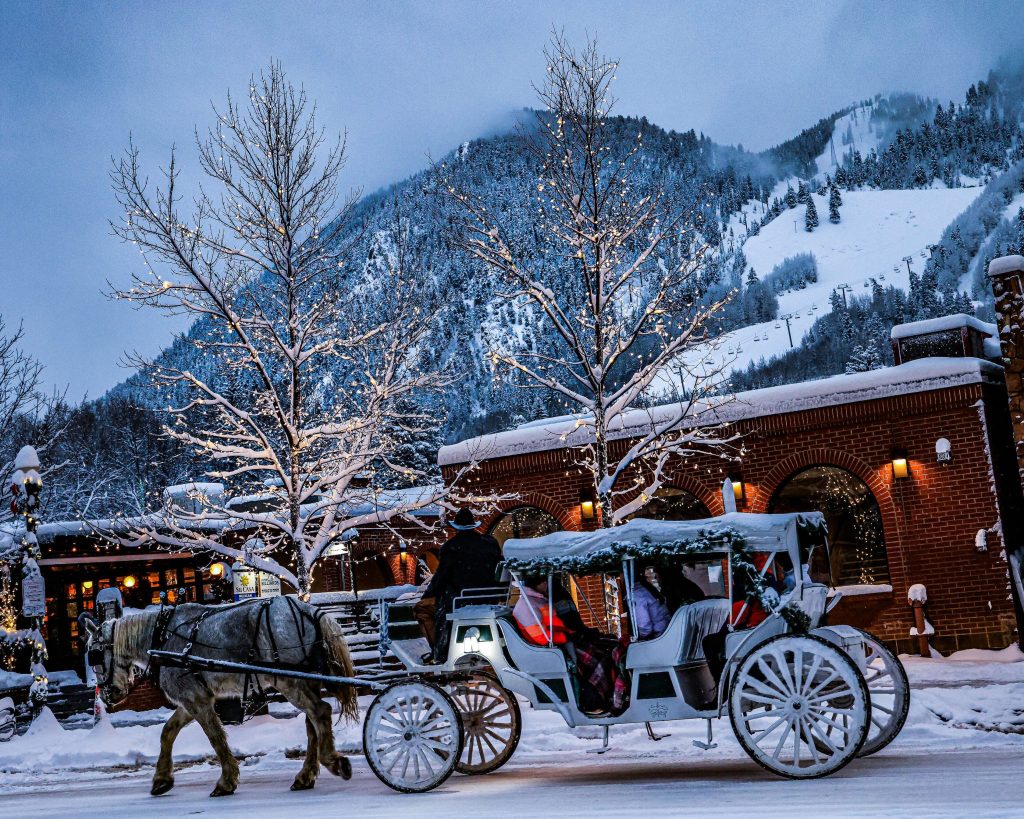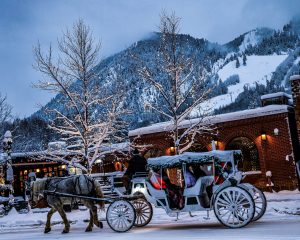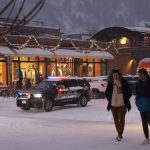Thanksgiving travel tips for driving in the Colorado mountains ahead of the busiest travel holiday of the year
Despite a slow start to the ski season, drivers on the Interstate 70 mountain corridor can expect an uptick in traffic, according to AAA

Austin Colbert/The Aspen Times
Traffic on Colorado’s mountain roads and the Interstate 70 corridor is already picking up ahead of the Thanksgiving holiday — and it’s only expected to grow busier into next week.
Nationwide, this Thanksgiving travel period is expected to be one of the busiest on record, with nearly 82 million Americans expected to travel between Tuesday, Nov. 25, and Sunday, Dec. 1, according to AAA.
“We know that Thanksgiving is the busiest travel holiday of the year,” AAA Regional Director of Public Affairs Skyler McKinley said. “It outpaces your summer holidays. It outpaces July 4. It outpaces Memorial Day. That’s because it’s a time when folks are just accustomed to traveling, to getting together.”
An estimated 73 million travelers are planning to drive over the holiday and about 6 million are expected to travel by airplane, McKinley said. Overall, travel in the U.S. over the Thanksgiving holiday is up about 2% from last year and about 5% from 2019.
While the busiest travel days are expected to be Tuesday and Wednesday next week and the Sunday following Thanksgiving, those in the Colorado High Country should expect traffic to begin picking up this week.
“Folks are kicking off travel early,” McKinley said. “This has been a phenomenon since the COVID-19 pandemic. Folks have more flexibility around when and where they work. Folks do leave earlier and they do book longer trips. So in earnest, the Thanksgiving travel period begins Thursday.”
Luckily for those traveling by air over the holiday, the longest government shutdown in U.S. history ended last week after 43 days. So, McKinley said most air travelers should expect “a regular Thanksgiving” without any lingering impacts from the shutdown.
While Colorado’s ski resorts have had a slow start to the season due to low snowfall, McKinley said there are few signs that those planning to travel to the High Country for Thanksgiving are canceling their plans.
“It’s been a dry fall, the resorts are broadly open for skiing, but it’s a lot of ribbon of death skiing,” McKinley said. “So, that might result in some changes in plans, but broadly, it’s going to be busy out there. Not only do folks travel to the Colorado High Country, but Coloradans travel as well, and as a function of that, we’ll see folks on our roadways and at our airports.”
To avoid the worst traffic, drivers should travel early in the day and stay off the roads during peak travel times on Tuesday and Wednesday, McKinley said. Traffic should decrease on the Thursday of Thanksgiving and on Friday, before it picks up again on Saturday and Sunday as people leave to return home.
In Colorado’s mountains, drivers should pay close attention to the forecast, since weather could be one of the most significant factors in avoiding traffic.
“Colorado is not cursed, while the weather is good, with those long, long, long traffic chains,” McKinley said. “We’ll get that headed to the High Country if there is bad weather. So check the forecast and if there is snow — thank goodness — but build in extra time.”
The Interstate 70 corridor could see a small amount of snow, between 1 and 4 inches, this Friday morning, but the weekend is expected to be dry, OpenSnow meteorologist Sam Collentine wrote in a blog post.
Monday and Tuesday next week are also expected to be dry, before a slight chance for snow on the Wednesday before Thanksgiving, Collentine said. After the holiday, he said long-range models show a possibility of a snowstorm around Friday, Nov. 29, or Saturday, Nov. 30. Still, it’s too far off to know exactly how much snow that storm will bring or whether it will materialize.
In case of wintry conditions, Colorado transportation officials suggest that drivers pack an emergency kit with a shovel, windshield scraper, warm clothes, food, water and other necessities. Drivers also should ensure that their vehicles comply with Colorado’s passenger vehicle traction laws, which require all vehicles to have all-weather or winter tires or chains.
While Colorado’s roadways may be busy, McKinley said that’s a good sign for the state’s economy, which relies on travel and tourism.
“More folks are traveling more frequently and that’s broadly good news for the economy,” he said, “but it can sometimes mean more frustrating lines at our TSA checkpoints and on our freeways.”
Pitkin County emergency dispatch director sees national recognition
A high performing 911 center and positive workplace culture don’t have to be mutually exclusive. That’s the philosophy proven by the director of Pitkin County Regional Emergency Dispatch Center, Brett Loeb, who was just recognized nationally as the 2025 Public Safety Answering Point Finest Director of the Year by NiCE Public Safety — an organization that recognizes emergency communications excellence.










